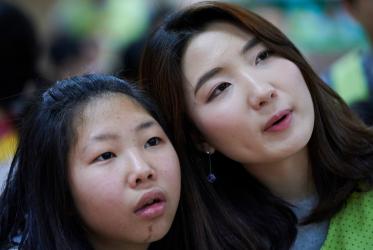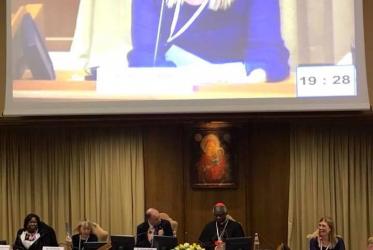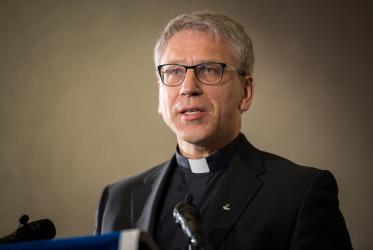Displaying 961 - 980 of 1642
WCC joins many in condemning Trump’s derogatory remarks
15 January 2018
Conversation on HIV “must continue,” Faith Networking Zone shows
07 December 2017
Church of Sweden responds to “fake news” regarding Worship Book
05 December 2017
In Nigeria, WCC workshops focus on human rights
04 December 2017
African women embark on pilgrimage in Burundi
29 November 2017
Theologinnen sprechen über Migration, Gender und Religion
08 November 2017
Tveit: “We are called to embrace the gifts of the others”
07 November 2017
Ugandan Mothers’ Union leader helps overcome HIV
31 October 2017









